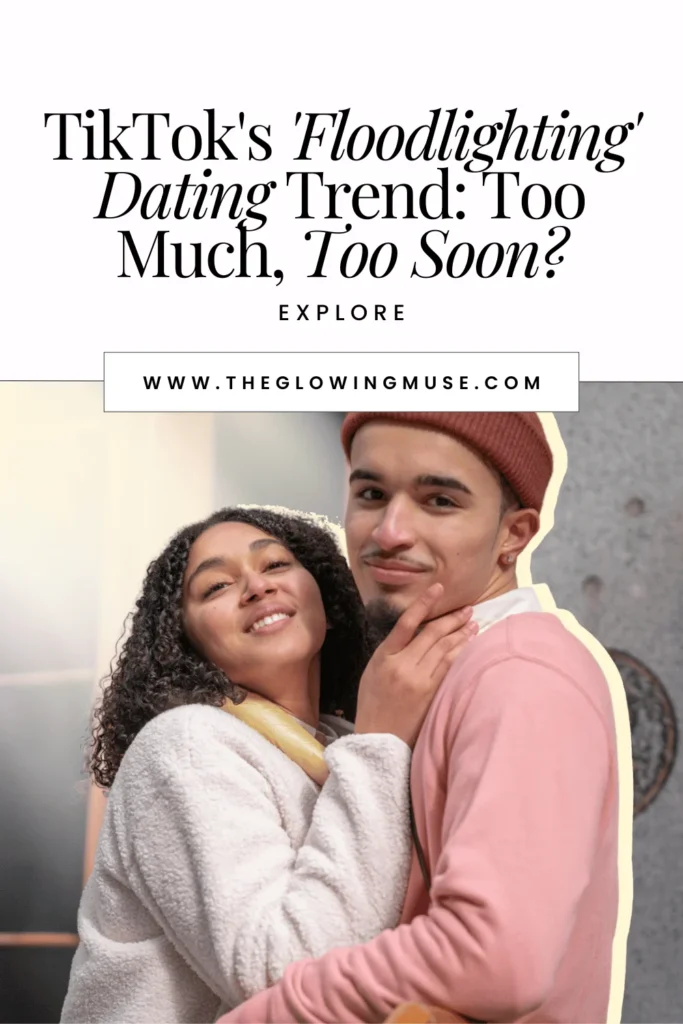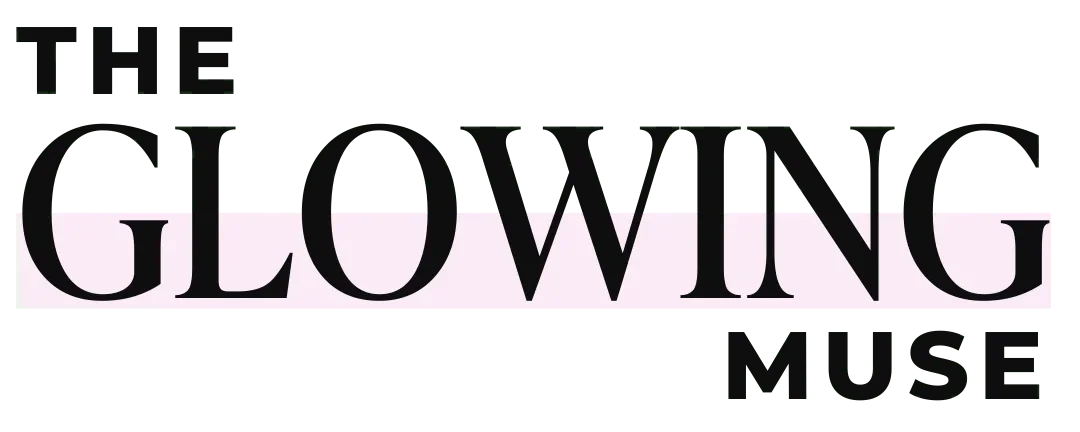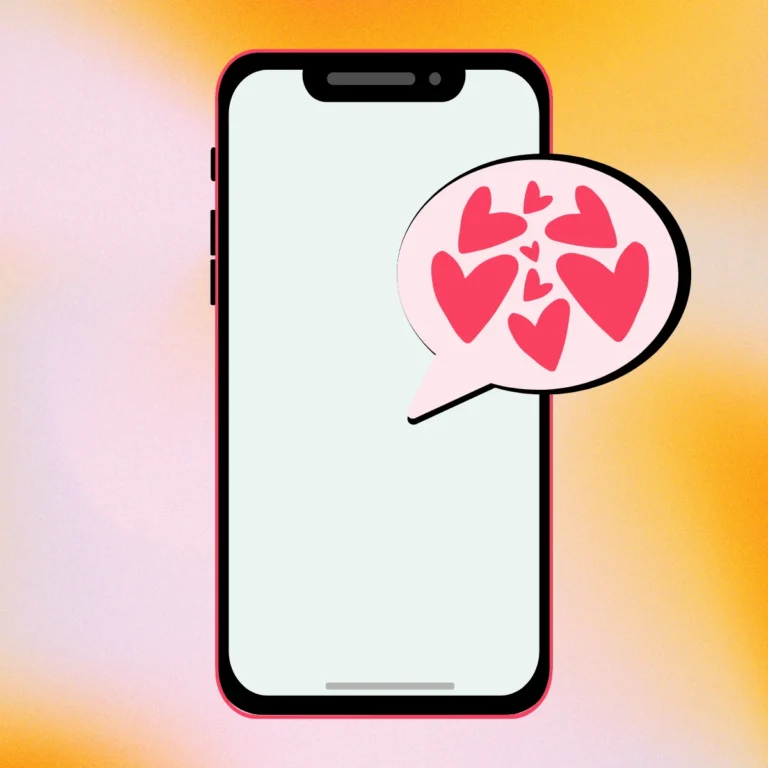Heads up! We may use affiliate links in this post. You'll never pay more, but we might earn a small commission if you buy - thanks for supporting us! See our full disclosure here.
You’ve been chatting for an hour on your first date with your Hinge match at that cosy coffee spot downtown.
The conversation flows naturally, your lattes are perfectly crafted, and you’re feeling that rare spark of connection.
Then suddenly—almost without realising it—you find yourself recounting your parents’ messy divorce, your therapy journey, or that soul-crushing breakup from last year!
Your date’s eyes widen slightly. The comfortable rhythm breaks. You’ve just ‘floodlighted’ them – it’s the newest dating phenomenon that’s actually been happening since… well… forever!
What Is ‘Floodlighting’?
While vulnerability guru Brené Brown first coined the term, TikTok has transformed floodlighting into 2025’s dating diagnosis du jour.
It’s that moment when you blast someone with intensely personal revelations before your relationship has earned the emotional clearance level for such classified information.
Unlike authentic vulnerability that blooms organically within trust, floodlighting feels more like an emotional ambush—for both parties involved.
@becca Floodlighting 💥 thank you @Brené Brown ❤️ @The LadyGang 🔗 #ladygangpodcast #brenebrown #floodlight #podcast #goodweek #rhoslcbravo #theladygang ♬ original sound – Becca Tobin
But scroll through the comment section under this viral TikTok video and you’ll see why not everyone sees this as problematic.
In fact, the online discourse around floodlighting reveals a much more nuanced reality.
“I feel like floodlighting happens so much more as you try to make friends when you’re older, because those are the only people that are open enough to talk to you! Honestly exhausting!” one commenter points out, highlighting how authentic connection becomes harder to find as we age, making those who are willing to be vulnerable immediately seem like rare treasures.

Others view the concept as yet another way to pathologise straightforward communication. “What I don’t like about this is there are people that like to be up front. I’ve always been like this—it’s just being honest,” argues a single parent of three, suggesting that direct disclosure isn’t a trend but a communication style that shouldn’t be “called into question.”
Perhaps most tellingly, one frustrated observer cuts to the heart of constantly shifting relationship advice: “First we don’t share enough, now we’re sharing too much. I mean man, make up your minds already.”

With such divided opinions flooding social media, the real question might be: is this ACTUALLY a problem, or just another example of overthinking modern connections?
Either way, many of us find ourselves doing it repeatedly—which raises the question: what’s driving this behaviour in the first place?
Why Are People Floodlighting On Dates?
The psychology behind floodlighting reveals more about our collective dating insecurities than we might care to admit—and science backs this up!
A fascinating 2022 study in Psychological Reports discovered that teens who chronically overshared online showed distinct psychological patterns—specifically anxiety, validation-hunting, and difficulty setting healthy boundaries.
While researchers focused on digital behaviour, these findings offer a compelling window into why we might floodlight during dates.
The Intimacy Fast-Track Illusion
In a dating culture dominated by swiping and ghosting, floodlighting paradoxically becomes an attempt to create a meaningful connection.
The thinking goes: If I reveal my truest, rawest self immediately, we’ll skip the surface-level games and get straight to what matters.
The problem? Real emotional intimacy can’t be microwaved—it needs to simmer.
The Preemptive Rejection Strategy
For many, floodlighting serves as an unconscious filtering system: If I show them my messiest parts now and they run, I’ve saved us both time.
This approach turns vulnerability into a defence mechanism rather than a bridge to connection.
It’s emotional self-sabotage disguised as authenticity.
Signs That You Might Be Floodlighting
You might be guilty of floodlighting if:
- You regularly share deeply personal stories within the first hour of meeting someone
- You feel a strange disappointment when someone doesn’t match your disclosure level
- After dates, you often experience vulnerability hangovers—that “why did I say all that?” feeling
- You’ve been told you’re “a lot” or “intense” in early dating stages
- You notice yourself revealing things you haven’t told close friends yet
How To Build An Authentic Connection Instead
Creating authentic connection doesn’t mean maintaining a perfectly polished façade—it means understanding the natural progression of trust.
The key is asking yourself before each date: What’s appropriate emotional currency for where you actually are right now? Reserve fun quirks and passions for first dates. Save family complexities for around the sixth date. And your deepest wounds? Those require earned trust.
Consider these alternative approaches:
- Practice reciprocal disclosure: Match the other person’s emotional depth rather than dramatically escalating it
- Implement the pause technique: Before sharing something intensely personal, take a breath and ask yourself what you’re hoping to achieve
- Create conversation boundaries: Decide before the date which life chapters aren’t yet available for discussion with someone new
- Recognise your validation patterns: Are you sharing to connect or to receive reassurance about your worthiness?
Save on Pinterest for later?

Final Thoughts
The most challenging aspect of authentic connection isn’t finding the bravery to reveal everything at once—it’s having the courage to reveal yourself gradually, allowing someone to earn access to your more vulnerable spaces.
True intimacy grows through consistent small moments of vulnerability honoured over time, not through emotional flashfloods that overwhelm the landscape before anything has had a chance to take root!
The next time you feel that urge to emotionally unload on your unsuspecting date, remember: the most meaningful connections aren’t built on how quickly you can reveal yourself, but on how thoughtfully you allow someone to discover you.









